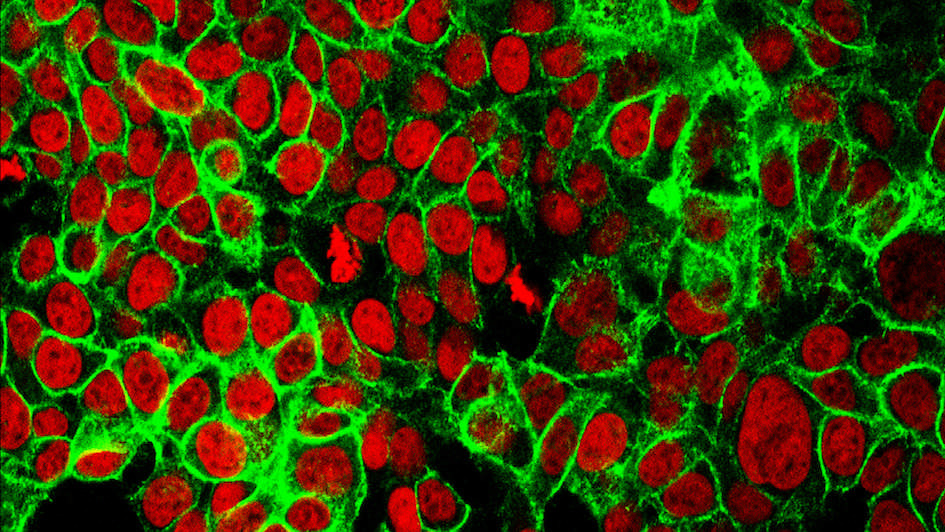
Image: Human colon cancer cells. Credit: NIH Image Gallery
A new study has helped to uncover how bacterial proteins work as a network to take control of our cells.
The research, co-led by scientists at Imperial College London, and The Institute of Cancer Research, London, could help predict infection outcomes and create new treatments. The findings could also be applied to explore the role of bacteria in the gut in some cancer types, such as bowel cancer.
The study, published in Science, investigated data from experiments in mice infected with the mouse version of E. coli, called Citrobacter rodentium. This project was supported by The Wellcome Trust.
Large-scale analysis
Disease-causing bacteria, such as E. coli, use miniature molecular syringes to inject their own chaos-inducing agents (called effectors) into the cells that keep our guts healthy.
These effectors take control of our cells, overwhelming their defences and blocking key immune responses, allowing the infection to take hold.
Scientists at the ICR worked with colleagues at Imperial to carry out large-scale analysis of the 31 different effector proteins.
The researchers suggest that knowing how the make-up of effector networks influences the ability of infections to take hold could help design interventions that disrupt their effects.
AI model could predict outcomes of infection
The team collected data on more than 100 different synthetic combinations of the 31 effectors, which they used to build an artificial intelligence (AI) algorithm.
The AI model was able to predict the outcomes of infection with Citrobacter rodentium expressing different effector networks, which were tested with experiments in mice.
As a next step, ICR researchers are investigating whether bacteria could be used to specifically target cancer cells, as a potential future treatment.
Study co-leader Professor Jyoti Choudhary, Professor of Cancer Proteomics at The Institute of Cancer Research, London, said: “Our study shows that we can predict how a cell will respond when attacked by different combinations of bacterial effector proteins. The research will help us to better understand how cells, the immune system and bacteria interact, and we can apply this knowledge to diseases like cancer and inflammatory bowel disease where bacteria in the gut play an important role.”